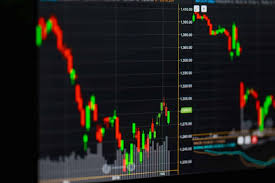
When it comes to investing, one of the most critical decisions to make is whether to focus on trading forex vs stocks Trading PH or stocks. Each trading environment has its unique characteristics, advantages, and potential for profit, which can significantly influence your financial success. In this article, we will explore the fundamental differences between Forex and stock trading, helping you identify which market may be the best fit for your trading style and financial goals.
Understanding Forex and Stock Trading
Forex, or foreign exchange, refers to the global market for trading national currencies against one another. It involves buying one currency while simultaneously selling another, which creates a pair—such as EUR/USD or GBP/JPY. Forex trading is known for its high liquidity and 24-hour availability, making it an attractive choice for traders seeking flexibility and the ability to react quickly to market changes.
On the other hand, stock trading involves buying shares in companies. When you buy a stock, you purchase a small piece of that company, giving you a claim on its assets and earnings. Stock markets operate mainly during business hours on specific exchanges, such as the New York Stock Exchange (NYSE) or the Nasdaq. Unlike Forex, stocks are subject to market volatility and economic conditions that can influence company performance.
Liquidity and Market Hours
One of the most significant differences between Forex and stock trading is liquidity. The Forex market is one of the largest financial markets in the world, with daily trading volumes exceeding $6 trillion, providing exceptional liquidity. This means that traders can enter and exit positions swiftly, often without significant price slippage. Forex markets operate 24 hours a day, five days a week, allowing traders to respond to global events and news at any time.
In contrast, stock trading can be more limited in terms of liquidity, especially with smaller stocks or during off-hours. While major stocks may offer good liquidity during the trading sessions, smaller stocks can experience significant price fluctuations due to lower trading volumes. Additionally, stock exchanges typically operate during specific hours, which can restrict trading opportunities and limit responses to real-time events.
Volatility and Risk

While both Forex and stock trading carry risks, they exhibit different volatility profiles. The Forex market tends to be more volatile due to economic events, geopolitical tensions, and other factors impacting currencies. High volatility offers traders the potential for profit but also increases the risk of losses. Traders often use strategies like stop-loss orders to manage this risk effectively.
In stock trading, volatility can vary based on market conditions, company performance, and sector trends. Some stocks may exhibit high volatility while others remain stable. In general, stocks can be influenced by earnings reports, economic data releases, and broader market indices like the S&P 500, affecting their price movements more predictably than currency pairs.
Leverage and Margin Trading
Leverage is a powerful tool in both Forex and stock trading, allowing traders to control larger positions with smaller amounts of capital. However, the levels of leverage available can vary significantly between the two markets. Forex brokers often offer high leverage, sometimes up to 1:500 or even higher, which can amplify both potential profits and losses. This high leverage can be attractive, but it requires careful risk management to avoid significant drawdowns.
In stock trading, leverage is usually lower, with most brokers allowing a ratio of 1:2 or 1:4 for margin accounts. While margin trading still provides the potential for increased returns, the lower leverage reduces risk exposure compared to Forex trading. Investors need to consider their risk tolerance when deciding on an appropriate level of leverage.
Market Analysis
Successful trading in both Forex and stocks requires a robust understanding of market analysis. Traders utilize two primary types of analysis: fundamental analysis and technical analysis.
Fundamental analysis in Forex involves evaluating economic indicators, such as interest rates, GDP, inflation, and employment data, which can impact currency performance. Traders must stay updated on geopolitical events and central bank decisions, as these factors can create significant market volatility.
Technical analysis, on the other hand, focuses on historical price movements and trading volumes to predict future price behavior. Forex traders often use technical indicators and chart patterns to identify trends and entry or exit points for trades.

In stock trading, fundamental analysis may involve evaluating financial statements, earnings reports, and market position to gauge a company’s performance. Technical analysis is also widely employed, with traders looking at charts and indicators to identify support and resistance levels.
Costs and Fees
The cost of trading is another factor that differentiates Forex from stock trading. In Forex, trading costs usually come in the form of spreads, which is the difference between the buy and sell prices. Some brokers may charge commissions as well, although many offer commission-free trading models.
Stock trading costs can include commissions, spreads, and other fees, such as exchange fees or account maintenance charges. While many brokers have moved to commission-free trading, other fees still apply, which can impact overall profitability.
Choosing the Right Market
Ultimately, the choice between Forex and stock trading depends on individual trading goals, risk tolerance, and experience. Those who prefer flexibility and fast-paced trading may find Forex appealing, while investors seeking long-term growth and a focus on specific companies may prefer the stock market.
Before deciding, traders should evaluate their financial objectives, develop a trading plan, and consider practicing with a demo account to gain experience without risking real capital. Furthermore, educating oneself about both markets can provide a comprehensive understanding of how each operates, leading to more informed trading decisions.
Conclusion
In conclusion, both Forex and stock trading offer unique opportunities and challenges. By understanding the key differences, including liquidity, volatility, leverage, analysis methods, and costs, traders can determine which market aligns with their investment strategy. Whether choosing to trade currencies or stocks, continuous education and practice are crucial to achieving success in the fast-paced world of financial trading.


